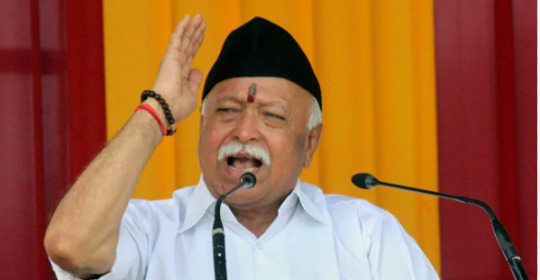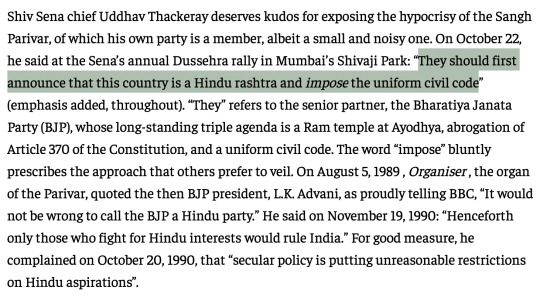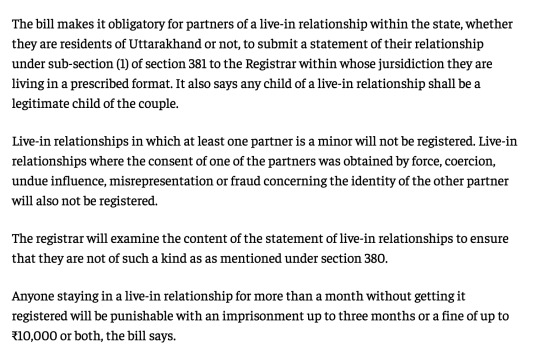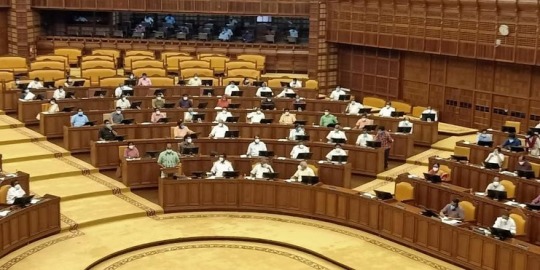#Uniform civil code
Explore tagged Tumblr posts
Text
Nobody wants the implementation of UCC more desperately than a law student struggling with personal laws
#WHY DON'T YOU GUYS GIVE WOMEN THEIR SHARE IN PROPERTY!!! SAB KUCH COURT HI KAREGA KYA!?!?!#WHO THE FUCK IS KARTA!?!?!#WHO MADE HIM KARTA!?!?!#WTF IS COPARCENARY!?!?!#law exams#law student#desiblr#law stuff#law school#law studyblr#desi tumblr#law academia#lawblr#shitposting#indian tumblr#exam season#exam stress#academia#random#desi thoughts#desi shit posting#shitpost#ucc#uniform civil code
11 notes
·
View notes
Text
#aclu#civil liberties#gun control#police violence#police brutality#police attack#police assault#uniform civil code#civil rights movement#civil disobedience#american civil liberties union#civil rights#civil unrest#constitution#constitutional law#constitutional rights#federal#federal judiciary#federal law#federal crimes#federal court#us senate#us house of representatives#president of the united states
17 notes
·
View notes
Text
Uniform Civil Code (UCC): Benefits and Challenges
The Uniform Civil Code (UCC) aims to replace personal laws based on religious customs with a unified set of laws for all citizens. This blog explores the benefits, such as promoting equality and national integration, and challenges, including threats to cultural diversity and implementation issues. Discover the pros and cons of UCC in India.
2 notes
·
View notes
Quote
The birth of the 21st century unleashed the onslaught of neo-liberal economic policies and the religious fundamentalist insurgence changed our concept of nation, nationalism, and politics. The Hindutva politics of cultural nationalism and its violent disposition toward indigenous and minority sections in this country provoked us to ask “Who sings the nation?” (Spivak) and “Whose imagined community?” (Partha Chatterjee). The issues such as the Babri Masjid case, Muthalaq case, Uniform Civil Code, the CAA, anti-conversion laws, and attacks on Dalit/Tribal Christians so and so forth have unveiled the wretched status of minorities in this country. Realizing that Muslims are hard to nationalize/ Hinduise, Christians are now targeted to be integrated into the pan-Indian Hindu cultural identity. Recently, some of the church leaders are satiated through frequent visits and political offers by the communal forces, and of course, few of them have already preyed on it due to the issues connected with foreign funds or any other personal issues of corruption. However, Christians should not forget the ideological position of Hindutva as it renders Christians, Muslims, and Communists internal threats to the Indian Nation.
Fr. Dr. Y.T Vinayaraj, director, Christian Institute for the Study of Religion and Society (CISRS)
#CISRS#YT Vinayaraj#India#Hindutva#Babri Masjid case#Triple Talaq case#Uniform Civil Code#CAA#anti-conversion laws#Tribal Christians#Dalit Christians#Hindu cultural identity#Indian Nation
9 notes
·
View notes
Text
Uttarakhand Becomes First Indian State to Enforce Uniform Civil Code
Uttarakhand made history today by becoming the first state in India to implement the Uniform Civil Code (UCC), a groundbreaking legal framework that introduces uniform laws for marriage, divorce, property, inheritance, and adoption across all communities. It is the second region in the country to adopt such a framework, following Goa.
The UCC aims to promote equality and fairness among all citizens, regardless of religion or community. It was one of the Bharatiya Janata Party's (BJP) key promises during the 2022 state elections. The implementation comes nearly a year after the state assembly passed the bill.
Key Changes Under the UCC
1. Live-In Relationships
· Live-in relationships must now be registered with authorities.
· Parental consent is mandatory for live-in relationships involving individuals below 21 years.
· Failure to register or providing false information could result in up to three months in jail or a fine of ₹25,000. A delay in registration may also attract penalties.
2. Marriage and Divorce
· Marriage registration is compulsory.
· The minimum legal age for marriage remains 21 years for men and 18 years for women, encouraging individuals to complete their education before marriage.
· The Code bans polygamy, child marriage, and practices like triple talaq.
3. Inheritance and Property Rights
· The UCC ensures equal inheritance rights for sons and daughters by eliminating gender-based distinctions.
· Children born out of live-in relationships will have equal rights to inheritance and are recognized as legitimate.
4. Banned Practices
Customs such as nikah halala (requiring a divorced woman to marry another man before remarrying her former husband) and iddat (mandatory waiting period after a husband’s death or divorce) are prohibited under the UCC.
Exemptions
The UCC does not apply to Scheduled Tribes, who will continue to follow their customary laws.
Significance
The introduction of the UCC in Uttarakhand is a significant step towards gender equality and legal uniformity. It ensures that personal laws no longer discriminate based on religion, fostering harmony among communities. While the move has sparked debates across the country, supporters view it as a progressive reform that aligns with constitutional principles.
As Uttarakhand leads the way, all eyes are now on other states to see if they will follow suit in adopting a Uniform Civil Code. For more details on this political news India in Hindi, subscribe to our newsletter!
#werindia#leading india news source#top news stories#top news headlines#top news of the day#national news#latest national news#indian politics#uniform civil code#Uttarakhand
0 notes
Text
0 notes
Text
#India elections#monumental India elections#Narendra Modi#third term#India’s political landscape#opposition alliance#BJP winning run#Vivek Mishra#India’s general elections#April 19#968 million eligible voters#largest democratic vote#logistical challenges#robust electoral mechanism#Lok Sabha#Bharatiya Janata Party#Indian National Congress#President of India#Anglo-Indians#Rahul Gandhi#Sonia Gandhi#Nehru-Gandhi political dynasty#electronic voting machines#voter turnout#polling stations#election expenditure#public opinion polls#uniform civil code#minority groups#exit polls
0 notes
Video
youtube
Uniform Civil Code in Uttarakhand | Uttarakhand में UCC लागू | #uttarak...
0 notes
Text
Exploring Key Issues: RSS Meeting Highlights Manipur, Sandeshkhali, and Farmer Protests
As the RSS's apex policy-making body, the Akhil Bharatiya Pratinidhi Sabha (ABPS), gears up for its meeting in Nagpur next week, several pressing issues are poised to take center stage. From the ongoing turmoil in Manipur to the Sandeshkhali incident in West Bengal, and the farmer protests in Punjab, the agenda promises to be packed with discussions on the nation's most critical challenges.

One of the focal points of the meeting will undoubtedly be the situation in Manipur. With tensions escalating and recent incidents like the abduction of an Additional SP by the radical Meitei organization Arambai Tenggol, there's an urgent need for dialogue and resolution. The RSS is actively engaging with various communities in Manipur, aiming to facilitate peaceful discussions and find viable solutions.
In West Bengal, the Sandeshkhali incident has cast a spotlight on the ruling TMC, with allegations of harassment and abuse surfacing against local leaders. This issue strikes at the heart of societal concerns and demands immediate attention.
Meanwhile, the farmer protests in Punjab and the nationwide debate on the Uniform Civil Code (UCC) are also on the agenda. The RSS has advocated for wider consultations on the UCC, particularly emphasizing the need to protect the interests of tribal communities. Additionally, discussions on population control policies will likely take place, with an emphasis on consensus-building rather than punitive measures.
The meeting will also explore the concept of Swadeshi, urging a shift towards embracing Indian languages and culture. This includes discouraging ostentatious displays of wealth, aligning with traditional values.
Notably absent from the discussions are contentious issues like the Gyanvapi mosque and the Mathura Idgah, which are currently under legal scrutiny. The RSS maintains that such matters are best left to the courts.
As the ABPS convenes with over 1,500 attendees, topics ranging from the RSS's centenary celebrations to organizational expansion will be on the table. With the 2024 Lok Sabha polls looming, leadership continuity is expected, ensuring a focus on strategic planning and progress assessment.
Stay tuned for more updates on these critical discussions shaping the nation's future.
0 notes
Text
Uttarakhand’s Uniform Civil Code: A Legal Analysis

In a historic move, Uttarakhand has appeared as the first state in independent India to pass the Uniform Civil Code (UCC) Bill. This Uttarakhand legislation proposal aims to establish common regulations concerning marriage, divorce, property inheritance, and live-in relationships for all citizens, irrespective of their religious affiliations. The passing of this bill on February 7 by the Uttarakhand State Assembly marks a significant step towards legal reform in the state, aligning with the Constitutional directive of Article 44.
Introduction of the Uniform Civil Code (UCC) Bill in Uttarakhand
The Uttarakhand Assembly, which is the first legislature in independent India to enact a bill proposing common guidelines for marriage, divorce, property inheritance, and live-in relations for all residents, regardless of religion, did so on February 7. This was the Uniform Civil Code (UCC) Bill.
This results from the Constitution's Article 44, "Directive Principles of State Policy," which requires the State to make an effort to enact such a uniform law even though it is not binding. The President will now get the bill, and if the president signs it into law, it will become a law. Except for the tribal group, which makes up 2.9% of the state's population, it applies to every Uttarakhand resident. The community has well received a UCC.
Objective and Scope of the Uniform Civil Code
The objective and scope of Uttarakhand’s Uniform Civil Code are multifaceted:
Uniformity: The primary aim is to make certain uniformity in legal provisions governing personal matters regardless of an individual's religious background.
Secularism: By implementing a UCC, the state upholds the principle of secularism, divorcing legal matters from religious influence.
Gender Equality: Uttarakhand’s UCC aims to promote gender equality by abolishing discriminatory practices prevalent in personal laws.
Social Justice: Principles of social justice are endeavored to be upheld by the code, ensuring equitable treatment for all citizens under the law.
Legal Simplicity and Clarity: Implementing a single legal framework facilitates legislative processes also promotes clarity in matters related to marriage, divorce, and inheritance.
National Integration: A UCC fosters national integration by transcending religious divides and fostering a sense of common identity among citizens.
Progressive Reform: A progressive reform is represented by the UCC, aimed at aligning legal practices with modern societal values and norms.
Constitutional Basis of Uttarakhand’s Uniform Civil Code
The legislative proposal in Uttarakhand’s Uniform Civil Code finds its constitutional basis in:
Article 44 of the Directive Principles of State Policy, which guides the state to secure for its citizens a uniform civil code throughout the territory of India.
Article 37, which stipulates that directive principles are fundamental to governance but not enforceable by any court.
The commitment to uphold secularism and equality before the law, as enshrined in various articles of the Constitution.
Historical Context and Adoption of Article 44
Uttarakhand’s Uniform Civil Code historical context:
The debate for a uniform civil code traces back to the colonial era in India.
Pre-Independence efforts, such as the Lex Loci Report of 1840 and the Queen’s 1859 Proclamation, laid the groundwork for legal uniformity while maintaining separate personal laws for different religious communities.
Post-Independence, leaders like Jawaharlal Nehru and Dr. B.R. Ambedkar advocated for a UCC, leading to its inclusion in the Directive Principles of State Policy.
Debate Surrounding the Uttarakhand’s Uniform Civil Code
The introduction of the Uttarakhand’s Uniform Civil Code has sparked a spirited debate, with various stakeholders expressing different views:
Opposition: Certain segments, including tribal communities, have voiced opposition to the UCC, citing concerns over preserving their cultural and religious independence.
Support: Proponents argue in favor of the UCC, citing benefits such as gender equality, legal clarity, and national integration.
Opposition to the Uttarakhand’s Uniform Civil Code
Despite its potential benefits, the Uttarakhand’s Uniform Civil Code faces significant opposition from certain quarters:
Tribal Communities: The tribal community, constituting a minority in Uttarakhand, has expressed reservations about the UCC, fearing infringement upon their Cultural diversity and religious laws rights.
Religious Conservatives: Conservative religious groups view the UCC as a threat to their traditional practices and oppose its implementation on religious grounds.
Support for the Uttarakhand’s Uniform Civil Code
Supporters of the Uttarakhand’s Uniform Civil Code highlight its numerous advantages and argue for its implementation:
Gender Equality Advocates: Advocates for gender equality view the UCC as a progressive step towards abolishing discriminatory practices prevalent in personal laws.
Legal Reformists: The need for a coherent legal framework governing personal matters is emphasized by legal reformists, with the UCC advocated as a means to achieve legal uniformity and simplicity.
Secularists: Secularists advocate for the separation of religion from matters of law, asserting that a UCC promotes secular principles and fosters Social cohesion.
Implications and Expected Adoption in Other States
The passage of Uttarakhand’s Uniform Civil Code carries significant implications for Legal system reform in other states:
Legal Precedent: A legal precedent is set by Uttarakhand’s Legislative enactment of the UCC, paving the way for similar legislative measures to be considered by other states.
National Discourse: A national discourse is sparked by the adoption of the UCC in Uttarakhand on the need for legal uniformity and secularism in matters of personal law.
Potential Adoption: Other states may follow Uttarakhand’s lead in enacting the UCC, driven by the principles of social justice, gender equality, and national integration.
To Know more about Uttarakhand’s Uniform Civil Code and Civil Law Related Queries, Contact M & M Law Partners.
For individuals seeking further information on Uttarakhand’s Uniform Civil Code or facing legal inquiries related to civil law, M & M Law Partners offers comprehensive Legislative agenda assistance and guidance. At M&M Law Partners, we have the best civil lawyers in Delhi who are experts in civil law.
FAQ
What Do You Mean by the Uniform Civil Code?
A single set of laws governing personal matters such as marriage, divorce, inheritance, and adoption is referred to as the Uniform Civil Code, which applies to all citizens irrespective of their religious affiliations.
Why Ucc Cannot Be Implemented in India?
The implementation of the UCC is seen as conflicting with Fundamental Rights guaranteed by the Constitution, such as Article 25 (freedom of religion) and Article 29 (legal rights to cultural preservation), raising concerns about its feasibility in India.
Who Launched Uniform Civil Code?
The Uniform Civil Code was launched in Uttarakhand by the state legislature, marking a significant legislative reform aimed at promoting legal uniformity and secularism.
Will Ucc Remove Reservation?
The implementation of a Uniform Civil Code is unrelated to the reservation system in India, which is governed by separate laws and policies.
Is UCC Good or Bad?
The perception of the Uniform Civil Code varies among different stakeholders. Gender equality, legal clarity, and national integration are argued to be promoted by proponents, while concerns about Cultural sensitivity, autonomy and religious diversity freedoms are raised by opponents.
0 notes
Text
youtube
अधिकारियों ने भी माना है कि यह हमला सुनियोजित था और घात लगाकर किया गया था, यानी लोग एक ट्रिगर प्वाइंट का इंतजार कर रहे थे जो उन्हें अवैध इमारतों को गिराने के रूप में मिल गया है, सरकार के आदेश पर अवैध इमारतों को तोड़ा जा रहा है. उच्च न्यायालय। और इसके लिए उन्हें नोटिस भी दिया गया था, लेकिन यह विशेष समुदाय किसी भी नियम, कानून और नोटिस का पालन नहीं करता है, इसके लिए सेना और पुलिस पर हमला करना बिल्कुल वैसा ही है जैसे हम किसी को भी खेल, कानून और प्रशासन में गिरा दे���े हैं। उन्होंने इसका मजाक उड़ाया है और फिर जब उनके साथ सख्ती से निपटा जाता है तो वे विवक्तिम कार्ड खेलते हैं, लेकिन असल में इस हिंसा की वजह पुष्कर सिंह धामी की समान नागरिक संहिता की बात है, वही गुस्सा इस माध्यम से निकाला जा रहा है. सरकार समझ सकती है और शायद नहीं भी जानती हो, लेकिन जनता सब जानती है।
0 notes
Link
Uniform civil code:- UCC क्यों जरूरी है? समान नागरिक संहिता क्या है? यूनिफॉर्म सिविल कोड या समान नागरिक संहिता में देश में सभी धर्मों, समुदायों के लिए एक सा...
0 notes
Text
Those who support Uniform Civil Code Bill, can someone help me with what's law or procedure to seek or secure divorce in Hindu religion?
Thanks to media and current govt's relentless focus and attack on Muslims, we know there are clear laid out terms and procedures for divorce in Islam. In fact, in Islam women seeking divorce do not even require husband's permission to annul a marriage. Plus there's provision about what she'll get etc etc. I'm not going into what happens in real practical terms but just what's prescribed in books.
Someone please help.
Rest, my current opinions are for diverse laws since India is made of diverse people. And slowly one law at a time move towards more progressive laws; towards laws that expand all our freedoms, provide citizens with more powers against state, towards equal and fare share in inheritance, so on and so forth.
If there are things another country does better then let's follow that country in that aspect. For example, our neighbor Pakistan has criminalised marital rape. But we in India refuse to even classify it as rape. So when we are saying "uniform", from where have we picked these "uniform" laws? For instance, Goa has, by far that I've read, best and most progressive inheritance law. If India tomorrow brings "uniform" law, would it be better than what we have in Goa? If not, should Goa regress for "uniformity" sake or can Goa keep its more modern law? And if it keeps, how can you call your law as "uniform"?
1 note
·
View note
Text
The UCC almost being passed in Uttarakhand is frankly a horrendous idea and a precursor to saying "bye bye secularism" in India.



^^ this is all just why the very notion of a UCC, especially the type of which BJP wants to implement should horrify people, however there is more:

oh and only m/f live in relationships are considered "legitimate" so this is also pushing back the status of queer rights in the country back with full force- forget marriage, basic recognition is being denied.

the very reason people get into live in relationships and not a marriage is either to test out the waters of living together, whereas some never want to get married at all because they dont want the state interfering in their affairs and this makes it impossible
there is so much more, here are articles you can refer to for it:
0 notes
Text
Uniform Civil Code 2023 – The ongoing strong debate
0 notes
Text
Kerala Assembly unanimously passes resolution against Uniform Civil Code
The Kerala Assembly is the first state legislature in the country to pass a resolution against UCC. THIRUVANANTHAPURAM: The Kerala Legislative Assembly unanimously passed a resolution on Tuesday demanding the Centre to refrain from its “unilateral and hasty” move to impose a Uniform Civil Code (UCC) that voids the secular character of the Constitution. The Kerala Assembly is the first state…

View On WordPress
0 notes